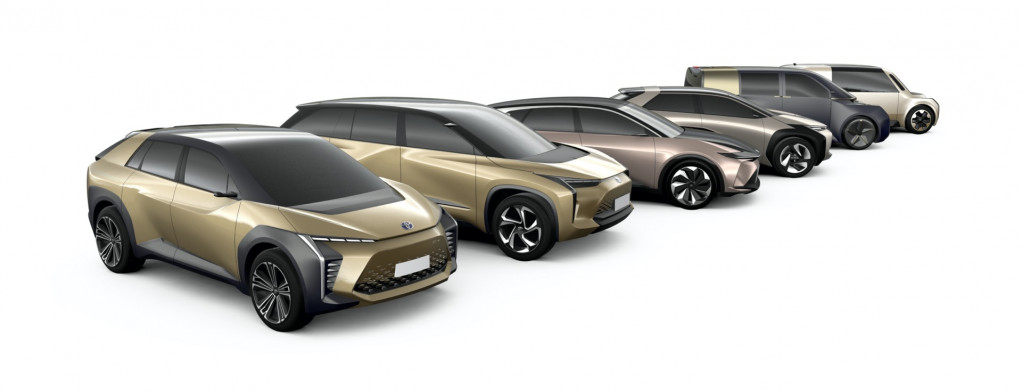Toyota on Wednesday confirmed plans to launch two electric vehicles and a plug-in hybrid in the U.S. this year.
The new models are part of a large-scale electrified-vehicle push. By 2025, Toyota wants 40% of its U.S. vehicle sales to be electrified models, including hybrids, plug-in hybrids, battery-electric cars, and hydrogen fuel-cell vehicles, a company press release said. The automaker expects that to increase to nearly 70% by 2030.

Toyota U.S. electrified vehicles presentation – February 2021
No details of the two electric vehicles or the new plug-in hybrid were released, but a graphic shared by Toyota revealed that one of the EVs appears to be a sedan. The automaker unveiled a handful of EV designs in 2019, and last year confirmed a partnership with Subaru for an electric SUV that will likely be sold under both brands. Toyota also confirmed that it is developing a dedicated EV platform called e-TNGA, and previously said it was working on solid-state batteries for future electric cars.
Toyota has largely avoided battery-electric vehicles, pitching fuel cells as an alternative zero-emissions technology, and continuing to push the hybrid technology it pioneered with the Prius. As recently as December 2020, company president Akio Toyoda opined that there was too much hype surrounding electric cars.

Toyota future electric vehicle designs – 2019
Wednesday’s announcement indicated Toyota hasn’t completely changed its stance on EVs. The company said internal research showed that battery-electric vehicles and plug-in hybrids have “similar environmental benefits.” Greenhouse gas emissions are “roughly the same” for the two powertrains when factoring in emissions from U.S. grid electricity production, according to Toyota.
However, that contradicts what the Union of Concerned Scientists has calculated in its annual studies of EV emissions. There is almost nowhere in the U.S. where an EV doesn’t produce significantly lower emissions, even when factoring in grid electricity, according to the group. Furthermore, all-electric cars have the potential to get cleaner as the grid transitions to renewable-energy sources.
The Toyota release also said the the automaker is aiming for “a diversified product portfolio with multiple forms of vehicle electrification” that will “let consumers choose the model that best suits their usage needs and cost profile.” So while Toyota is introducing some electric cars, hybrids and plug-in hybrids could still account for a bigger share of sales volumes.
Toyota hasn’t sold a battery-electric vehicle in the U.S. since the Tesla-powered RAV4 EV ended production in 2014. So far, the only one of Toyota’s promised new EVs to launch has been the Japanese-market C+Pod minicar.

Leave a Reply